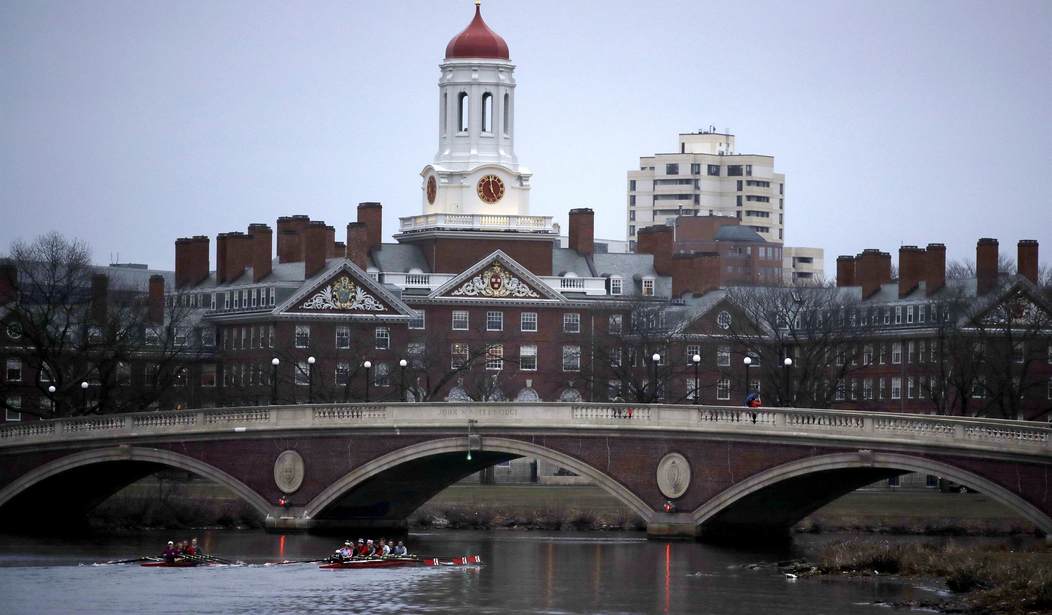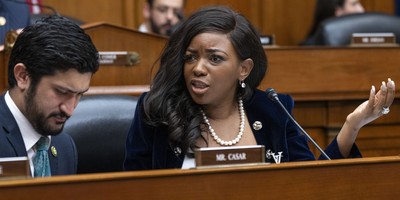We wrote about this issue back in 2019, then again in March of this year. So why keep bringing it up? Because these numbers released in the spring by Pew Research represent yet another confirmation of a reality about American public opinion that will make identity obsessives on the left very uncomfortable. It also flies in the face of the dominant and prevailing elite ethos on race and culture. In many institutions and corporations, "Diversity, Equity and Inclusion" (DEI) is all the rage. The idea of not worshiping at that particular altar is strictly verboten. Unfathomable.
But out in America, the vast majority of people believe race should not be a factor at all in university admissions:
Both legacy admissions and racial preferences continue to be unpopular with the public, which prefers high school grads, standardized test scores, and community service (in that order) to be the factors that are considered by colleges https://t.co/fgW9hA0PPI
— Zaid Jilani (@ZaidJilani) July 25, 2022
As you can see, huge majorities of Americans believe that high school grades and standardized test scores should be major or minor factors in such processes. Community involvement also earns a majority. Dead last on the list are racial and gender considerations, and "legacy" admissions, which likely strike most people as inherently unfair and divorced from individual merit. Contrast those views with the absolute fixation within the academic establishment on identity, de-emphasizing achievement and merit. Some schools have made submitting test scores entirely optional, or won't consider the scores at all. This is done in the name of "equity" and anti-racism but it actually harms many of the students it's ostensibly intended to help. In this survey, 74 percent of Americans say race and ethnicity should not be considered whatsoever in admissions decisions. That total includes solid majorities of all racial demographics polled:
Although majorities of Americans across racial and ethnic and partisan groups say race or ethnicity should not be factored into college acceptance decisions, there are variations in how widely this view is held. About eight-in-ten White adults (79%) say race or ethnicity should not factor into admission decisions. By comparison, 68% of Hispanic adults say this, as do about six-in-ten Asian American (63%) and Black (59%) adults.
Roughly six-in-ten Black Americans are opposed to racial considerations on this front, and that's the most supportive sub-group. The Supreme Court will decide a race-based college admissions case in the next term, and woke identity fetishists will surely scream "racism" if they don't get their preferred outcome (a groundbreaking and novel approach, to be sure). Lefty activists often mistake their insular ideological bubbles for broader public opinion trends, which is why they have no idea how out of touch they are on abortion, for example. The same applies to affirmative action and other forms of "reparative" DEI social engineering. Justice Elena Kagan just recently warned that the Supreme Court must stay attuned to public sentiment, in order to safeguard its 'legitimacy,' even though that's not the justices' job:
Kagan warns that Supreme Court legitimacy at risk if it strays too far from public sentiment https://t.co/0hkcP6qGNx pic.twitter.com/PUukrJ46TF
— The Hill (@thehill) July 22, 2022
If she believes that, surely she's carefully scrutinizing data like the Pew numbers highlighted above as she prepares to weigh the upcoming Harvard case, no? Surely, she doesn't want to be on the wrong side of a 75/25 issue? Legitimacy, etc. Or does that standard only apply when the Court's conservative majority does something that can be framed as unpopular (even if the reality is much more complicated)? Finally, since I somewhat invoked the Dobbs case, I'll leave you with this:
Recommended
— Ramesh Ponnuru (@RameshPonnuru) July 25, 2022

























